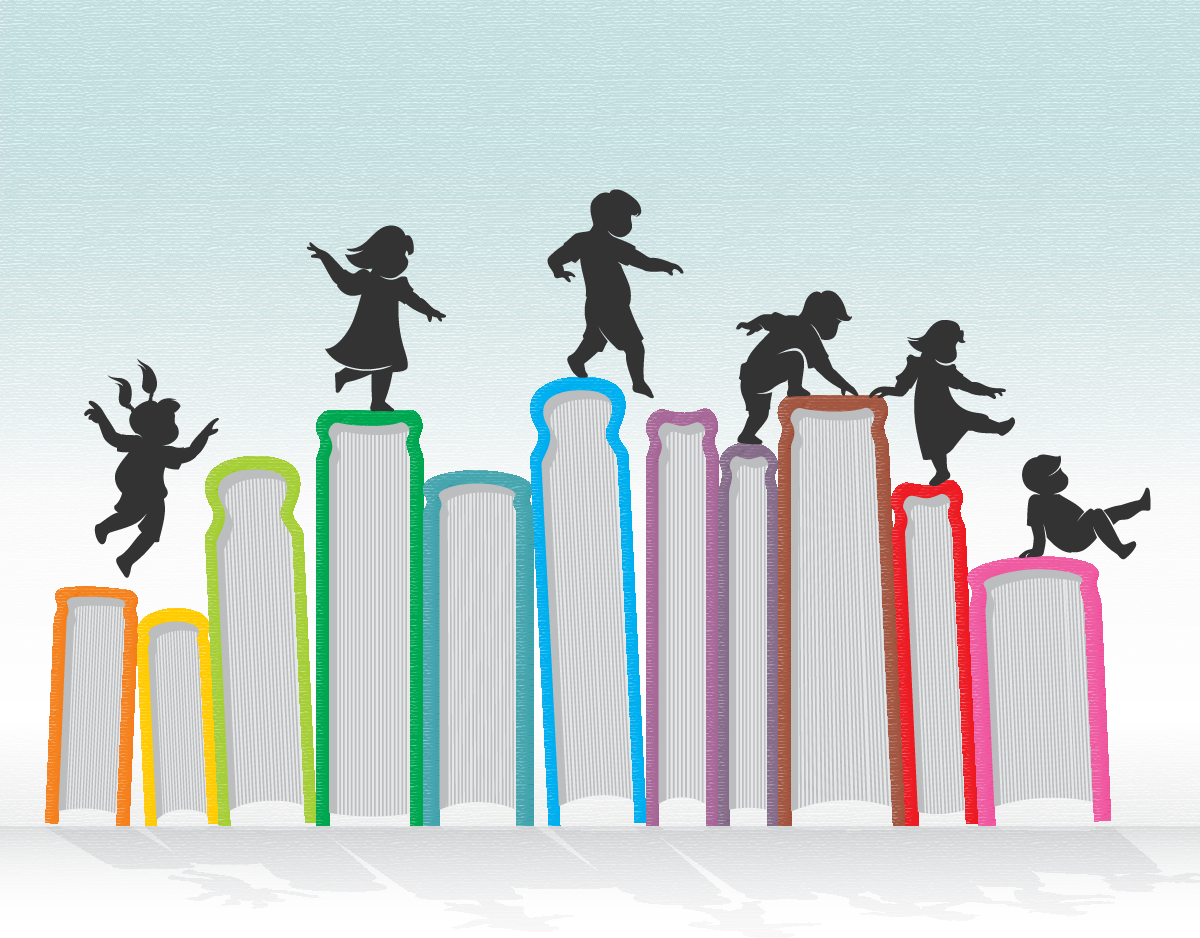Head Start and Public Libraries, Ideal Partners | First Steps
Everyone wins when public libraries collaborate with these preschool programs, which are funded by the U.S. Department of Health and Human Services and implemented through local agencies.
 |
SLJ Modified: draco77/Getty Images |
When Kate Miller, children’s librarian at the David A. Howe Public Library in Wellsville, NY, regularly offered story times to Head Start preschool classrooms, she noticed a change. “I saw a dramatic increase in [children’s] ability to sit and listen to a story from the beginning of the year to the end,” she says. “It filled my heart.” Like many librarians, she has found Head Start to be an ideal partner. She has visited Head Start preschools on parent night for library card registration, to share library resources, and to offer a mini story time for the parents.
Head Start programs support children’s growth from birth to age five through services centered on early learning and development, health, and family well-being. They help us connect with families who may not be active users, particularly high-need families. Since Head Start staff encourage parents and caregivers to set goals around language and literacy engagement for themselves and their children, library staff can reach multiple generations at once.
Launched in 1965 as part of President Lyndon B. Johnson’s War on Poverty, Head Start has served nearly 40 million children and has been documented to improve children’s educational, social-emotional, and health outcomes, with gains crossing generations. The program is cost-effective: research shows that programs yield at least $7–9 for every $1 invested in economic and social benefits, including increased earnings, reduced crime, and improved health outcomes.
[Also read: A Deep Dive into the Power of Rhymes | First Steps]
Many public library youth service staff visit their local Head Start programs weekly to annually. Head Start classes will also make the trip to the library if they are close enough. Katie Morrison, youth services librarian at Belgrade (MT) Community Library, often hosts two to three classes for them back-to-back at the library. “I do a short story time. I ask what they are learning about so I can tailor my story time to that theme.” Shelley Hudspath, coordinator of children’s services at the Marion (IL) Carnegie Library, recently spoke at her local Head Start program’s evening family gathering about library offerings and how to get a card. These occasions are also a chance to tell Head Start parents about other library services, such as ELL classes, hot spot and museum-pass lending programs, and homework help for older siblings.
If your schedules limit outreach, look for resources to offer remotely. Heather McCue, children and teen services manager at the Richland (SC) Library, disseminates a parent tip bookmark with family reading suggestions. A Michigan public librarian offers their “Reading Aloud Is a Superpower” early literacy parent workshop virtually.
For 30 years, Kansas City (MO) Public Library’s Books to Go program has delivered curated boxes of new books monthly to all Head Start programs in the area. “We strive to have story time at as many sites as possible to encourage further use of the books,” adds Crystal Weirich Faris, deputy director of youth and family engagement. Holley Dix, youth services librarian at North Adams (MA) Public Library, offers book bundles on Head Start thematic units when teachers stop by or she visits centers.
Despite an effective track record, Head Start, funded by the U.S. Department of Health and Human Services and implemented through local agencies, may be at risk of cuts or elimination, a Project 2025 goal. This would devastate many communities, both rural and urban, with Head Start programs making up 25–30 percent of the child care supply.
So if you are not working with your local Head Start program(s), search for sites and reach out! They need to document partnerships with local organizations, so program directors may request library partnership agreements. Carmen Rodriguez, retired assistant professor of Columbia University and former director of its Head Start programs, says collaborations between Head Start and public libraries are vital for family lifelong learning. “Head Start may be the home for a child when they are young, but the library should be the family’s permanent home.”
 Rachel G. Payne is coordinator of early childhood services at Brooklyn Public Library.
Rachel G. Payne is coordinator of early childhood services at Brooklyn Public Library.
RELATED
The job outlook in 2030: Librarians will be in demand
The job outlook in 2030: Librarians will be in demand
ALREADY A SUBSCRIBER? LOG IN
We are currently offering this content for free. Sign up now to activate your personal profile, where you can save articles for future viewing






Add Comment :-
Be the first reader to comment.
Comment Policy:
Comment should not be empty !!!